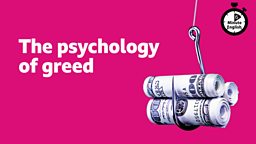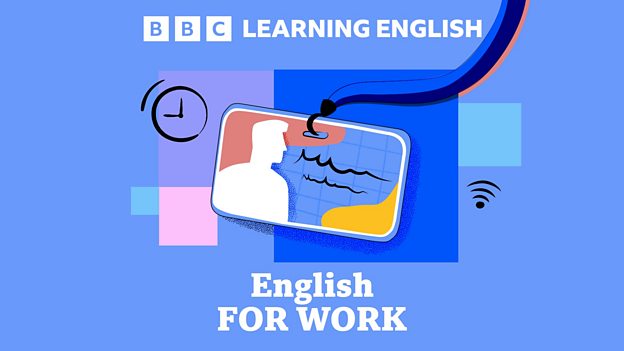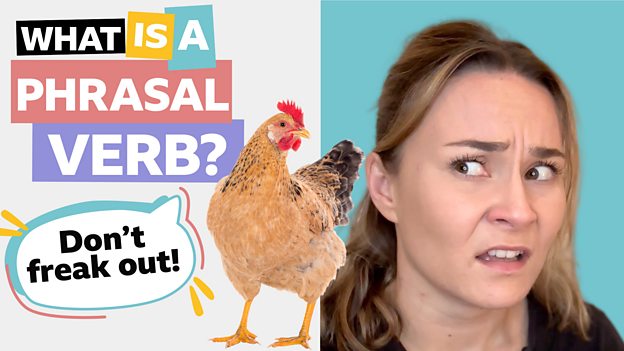6 Minute English
Intermediate level
How bubble tea got its bubbles
Episode 240523 / 23 May 2024

______________________________________________________________________________________________________
Download a free 6 Minute English worksheet!
Download a free transcript!
______________________________________________________________________________________________________
Try more episodes of 6 Minute English:
______________________________________________________________________________________________________
Introduction
How did bubble tea get its bubbles? How was this drink invented? Neil and Beth discuss this and teach you some useful vocabulary.
This week's question
What proportion of Brits do you think regularly drink tea? Is it:
a) 39%
b) 49% or,
c) 59%?
Listen to the programme to hear the answer.
Vocabulary
cuppa
(informal, British English) a cup of tea
signature
special feature for which something is particularly known
chewy
needing to be chewed a lot before it becomes soft enough to swallow
innovative
new and original
spread like wildfire
(idiom) quickly become known by more and more people
miracle
very lucky event that is surprising and unexpected
TRANSCRIPT
Note: This is not a word-for-word transcript.
Neil
Hello. This is 6 Minute English from BBC Learning English. I’m Neil.
Beth
And I’m Beth. Are you a tea or coffee drinker, Neil?
Neil
Well, I usually drink a cup of coffee in the morning. How about you, Beth?
Beth
Oh, I’m definitely a tea drinker. There’s nothing like a good cuppa to start the day.
Neil
Yes, a cuppa – it’s a word in British English meaning a cup of tea, right? But there are many different types of tea. Which tea do you like?
Beth
Well, I usually drink English Breakfast tea in the morning, then a matcha tea at lunch, and maybe a calming herbal tea before bed.
Neil
Wow! It sounds like you’re a real tea addict, Beth, so you’ll love this programme because we’re discussing an exciting drink called ‘bubble tea’. And, as usual, we’ll be learning some useful new vocabulary as well.
Beth
Great. But first, I have a question for you, Neil. Today, British supermarkets sell almost twice as much coffee as tea, and consumer surveys have found that a majority of Brits prefer drinking coffee. So, what proportion of Brits do you think still regularly drink tea? Is it:
a) 39%
b) 49% or,
c) 59%?
Neil
Well, let me think about that. I'm going to say b) 49%.
Beth
OK, Neil, I'll reveal the answer at the end of the programme. People have been drinking tea for centuries, but that doesn’t mean tea drinking hasn’t changed over the years. Here in Britain, new trends such as iced tea and green matcha tea have become as popular as the traditional English cuppa which, as everyone knows, is black tea with a splash of milk.
Neil
One of the latest tea trends is pearl milk tea, also called bubble tea, but if you’ve never heard of it, don’t worry - here’s presenter, Ben Henderson, explaining more for BBCWorld Service programme, Witness History:
Ben Henderson
For those who don't know, pearl milk tea or bubble tea, is tea usually mixed with milk, crushed ice and filled with its signature chewy tapioca balls. But customers can then add whatever flavours they want. It's innovative and exciting.
Beth
Pearl milk tea, or bubble tea as it’s often called, was invented in 1987 by Taiwanese tea shop owner, Liu Han-Chieh. The ‘bubbles’ in a glass of bubble tea are made from balls of a chewy starch called tapioca. Food which is chewy needs to be chewed a lot before it becomes soft enough to swallow.
Neil
It’s these tapioca balls which give bubble tea its name. You might say they’re bubble tea’s signature ingredient – they’re a special feature for which something is particularly known. For example, paella is the signature dish of Spain.
Beth
What’s more, because tapioca doesn’t have a strong taste, different flavours can be added, making bubble tea an innovative, meaning new and original, drink. Liu Han-Chieh’s invention was inspired by a trip to Japan where he saw people enjoying iced milk tea on a hot summer day. When he added tapioca balls, which he found in a local market on his return to Taiwan, the bubbly new beverage was born.
Neil
But it was only when famous international celebrities including basketball player, Michael Jordan, and movie star, Jackie Chan, started visiting his tea shop, that Liu Han-Chieh’s bubble tea began a revolution in the tea-drinking world. Here is Liu Han-Chieh telling more to BBC World Service programme, Witness History:
Liu Han-Chieh
Pearl milk tea got huge media coverage and it spread like wildfire. But I always say, we have many other products, and the reason pearl milk tea became so popular was pure luck. It was a miracle.
Beth
Thanks to its celebrity fans, Liu Han-Chieh’s bubble tea became an international bestseller, and news of his exciting new drink spread like wildfire, an idiom meaning it became quickly known by many people.
Neil
As more and more people tried it and fell in love with its smooth chewy taste, bubble tea spread to neighbouring countries like South Korea and China, and then to the rest of the world. For Liu Han-Chieh it was a miracle, a very lucky event that is surprising and unexpected.
Beth
It’s great to hear about something that gives a modern twist to a drink that’s part of a country’s traditional culture… Maybe that’s what we need here in Britain too.
Neil
Yes, your question was about the fact that nowadays more people in Britain prefer coffee than tea. I think it‘s time you revealed the answer.
Beth
Right. I asked you what percent of Brits still regularly prefer drinking tea over coffee and you said 49 percent, which was… the wrong answer I’m afraid, Neil. In fact, around 59 percent of Brits still regularly drink tea. Maybe it’s time for a bubble tea revolution over here! OK, let's recap the vocabulary we've learned in this programme, starting with cuppa, an informal word in British English for a cup of tea.
Neil
The word signature describes a special feature for which something is particularly known.
Beth
If food is chewy it needs to be chewed a lot before it’s soft enough to swallow.
Neil
The adjective innovative means new and original.
Beth
If something spreads like wildfire, itbecomes quickly known by more and more people.
Neil
And finally, a miracle is a very lucky event that is surprising and unexpected. Once again our six minutes are up but remember to join us again next time for more topical discussion and useful vocabulary, here at 6 Minute English. Goodbye for now!
Beth
Bye!
Latest 6 Minute English

Embarrassed to go to the doctor?
Episode 241226 / 26 Dec 2024
Have you ever been embarrassed to go to the doctor?
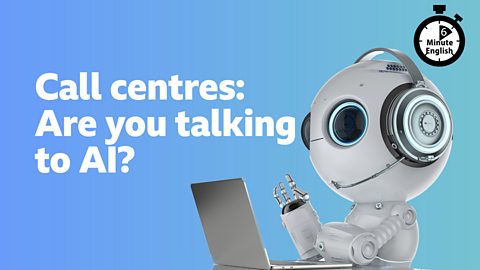
Call centres: Are you talking to AI?
Episode 241219 / 19 Dec 2024
Have you ever phoned up a company and had your call held in a queue? Could AI make this less painful?

Making 'mum friends'
Episode 241212 / 12 Dec 2024
Is making new ‘mum friends’ the positive experience it’s often described as?
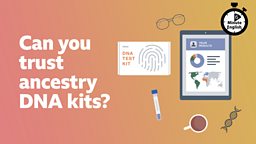
Can you trust ancestry DNA kits?
Episode 241205 / 05 Dec 2024
Are DNA ancestry tests a reliable way to trace your ancestry?

How babies learn to talk
Episode 241128 / 28 Nov 2024
What do babies need to learn to do to be able to talk?


The bond between sisters
Episode 241114 / 14 Nov 2024
Are the stereotypes about older and younger sisters true?


Why you need a good night's sleep
Episode 241031 / 31 Oct 2024
Why is it so important to get a good night's sleep?

Divorce: Why does it happen?
Episode 241024 / 24 Oct 2024
How is divorce talked about in different countries?
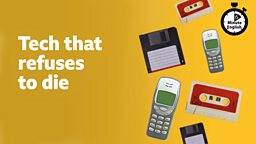

Did Taylor Swift fans cause an earthquake?
Episode 241010 / 10 Oct 2024
Did Taylor Swift move the Earth?

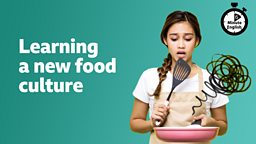
Learning a new food culture
Episode 240926 / 26 Sep 2024
Would you find it different to adapt to a new food culture?

Saving water in the driest place on Earth
Episode 240919 / 19 Sep 2024
How do farmers in the driest place on Earth manage to grow crops? With this solution!

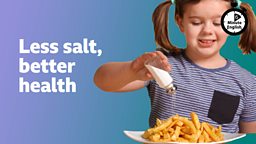
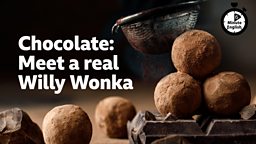
Chocolate: Meet a real Willy Wonka
Episode 240829 / 29 Aug 2024
Would you like to be a chocolate maker, like Roald Dahl's Willy Wonka?
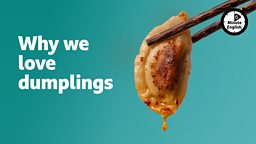
Why we love dumplings
Episode 240822 / 22 Aug 2024
Warning! This episode might make you very hungry...

Kids and climate change
Episode 240815 / 15 Aug 2024
What are young people's thoughts on climate change?


The science of falling in love
Episode 240801 / 01 Aug 2024
What's really happening in our brain when we fall in love?
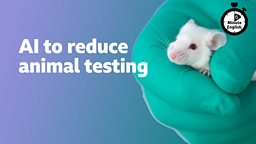
AI to reduce animal testing
Episode 240718 / 18 Jul 2024
Could AI reduce the need for animal testing?

Why read books, not screens?
Episode 240718 / 25 Jul 2024
Why is it better to read from a book than a screen?
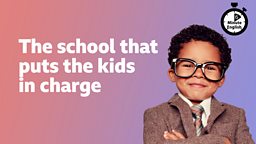
The school that puts the kids in charge
Episode 240711 / 11 Jul 2024
What happens when you put the kids in charge of the school?

What can we learn from toddlers?
Episode 240704 / 04 Jul 2024
Learn to speak to yourself in the way that toddlers do!

How learning to read changes lives
Episode 240627 / 27 Jun 2024
How can literacy change people's lives?

Building a better world with wood?
Episode 240620 / 20 Jun 2024
How can buildings made from wood help our mental health?

How names can tell painful stories
Episode 240613 / 13 Jun 2024
Could our name have painful baggage?

E-rickshaws driving away pollution
Episode 240606 / 06 Jun 2024
Could E-rickshaws give us cleaner air?

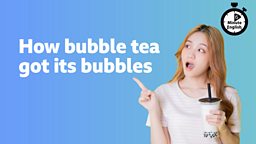


Bitter food, better health?
Episode 240509 / 09 May 2024
Could bitter foods be better for your health?
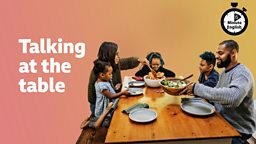






Disability in music and theatre
Episode 240321 / 21 Mar 2024
Learn about the people who are making it easier for disabled musicians and music fans to perform and see live music

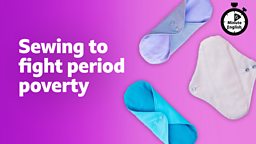
Sewing to fight period poverty
Episode 240307 / 07 Mar 2024
Period poverty affects over 500 million people worldwide. How can a volunteer project help?

Plastic waste eaten by enzymes
Episode 240229 / 29 Feb 2024
Plastics can be difficult to recycle. Could a recently discovered enzyme help?
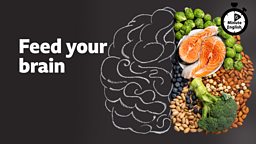
Feed your brain
Episode 240222 / 22 Feb 2024
Food is fuel for our brains. So, what should we be eating?
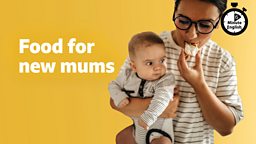
Food for new mums
Episode 240215 / 15 Feb 2024
Having a baby is exhausting! What do mothers need to eat after giving birth?

Fighting loneliness with soup
Episode 240208 / 08 Feb 2024
Hear how a project in the Netherlands is helping in the fight against loneliness

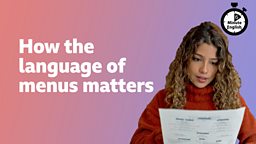
How the language of menus matters
Episode 240125 / 25 Jan 2024
Why is the language used on menus important?
